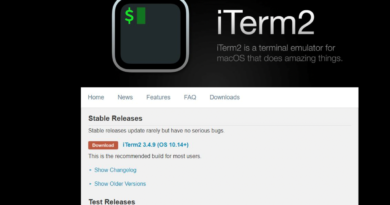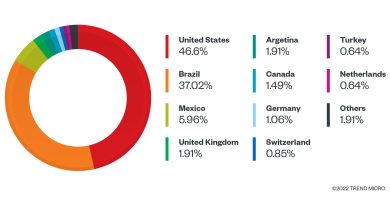Empowering T-Mobile Consumers VP, Threat Intelligence


The recent news of T-Mobile being breached and 40 million customers’ personal information potentially being sold on the dark web may leave many of these victims feeling helpless. It is understandable that you may feel you have no power to protect your data. In this case, the critical data supposedly leaked includes:
- Names
- Social security numbers
- Driver’s license numbers
- Physical addresses
This data can be used by malicious actors to do major financial damage to victims through schemes like tax fraud, banking and financial fraud, and shipping goods fraud, among others. But while many of these types of fraud can be done by malicious actors without engaging the victim at all, there are some things that that you have the power to do to prevent potential attacks against yourself.
Power to Prevent Online Fraud
The first attacks against victims of a data breach will likely be socially engineered phishing attacks. These could come via email, texts, or even phone calls where the attackers use the information available to them to convince victims to give up information, money, or access.
You have the power to prevent this type of attack by only using login credentials when you initiate the login. If you ever unexpectedly get a login request, you should be very suspicious. For example, if you open an email attachment, click on a link in an email or text, or are browsing a webpage and a login screen pops up, these can all be potentially fraudulent. If you receive an unsolicited request for information, they may be trying to get you to give up information about yourself or your accounts. Whether this is via email, text, or voice (phone call), if you didn’t initiate this request, you should ignore it. If, for example, you receive a call claiming to be from T-Mobile, hang up and call T-Mobile directly. If via email, check the email closely for signs of phishing like an incorrect domain or website address. Check the official T-Mobile website for information on how they plan to contact you.
Another way of targeting you is to gain access to your computer. This again could be done via email, text, but more often this is done via voice. You will receive a phone call and they will give you several reasons they need to gain access to your computer. This may be stating your system is infected, or they found suspicious activity, but ultimately, they want access so they can plant malware on your computer to take it over. Again, if you didn’t initiate this and it is an unsolicited engagement with you, you should be very suspicious.
Power to Prevent Tax/Financial Fraud
Malicious actors with access to sensitive data will often initiate financial fraud against their victims. This may be in the form of emails, texts, or phone calls purporting to come from the social security administration or the IRS stating you owe money, or that you are in violation of their processes. With driver’s license data, they may contact you for car registration payment. Whenever you receive an unsolicited request for money, you should be suspicious. Many of these requests can look very real and the phone conversations can sound very real, but that is because cyber criminals have become very good at socially engineering their attacks.
In some instances, this stolen data can allow malicious actors to open new accounts, tax returns, or even mortgages. You can prevent this by initiating a credit monitoring service to alert you if there is suspicious activity. This may be offered by T-Mobile to their customers, but it is a good idea for anyone looking to protect their credit. Free versions of these services may not have as much visibility as a paid version, but in both cases, you can do and see more than without one. With tax fraud, you can contact your state’s tax center or the IRS for help.
Power to Prevent Shipping Fraud
Cyber criminals often use goods to launder their ill-gotten gains, and as such they may use the physical addresses obtained in this incident to ship online purchased goods. They will have a mule (someone who wittingly or unwittingly supports this activity) ready to receive these shipped items at the address. If you have someone home during the day, they can check on any new goods showing up at your door. If you do not have anyone home, you may want to look into a doorbell camera that could alert you to new shipments. If you do find this activity, you can alert the shipping company of this activity so they might be able to stop it.
What comes next?
In our 1H’2021 Cyber Risk Index, we asked over 3,600 businesses across the world about what critical data is at risk for them. Consumer data is in the top five data types that organizations are most concerned with in the case of a data breach. This is a call to action for any businesses that hold customer data to re-think their strategy for protecting it. Even ransomware actors today target this data in their campaigns, as they can use it for a second extortion option. We’re also seeing it used as the fourth model of extortion by ransomware actors who contact these customers to put pressure on the main victim.
While this new incident isn’t anything we haven’t seen before, it may cause consumers to lose faith and feel helpless. But there are many ways in which the consumer can feel empowered to protect themselves from future fraudulent activities.
Read More HERE



